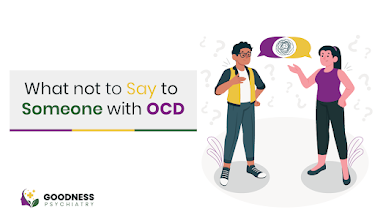Does Ketamine Lower Blood Pressure? A Comprehensive Look at Its Effects
Ketamine, once primarily known for its use as an anesthetic, has garnered attention for its efficacy in treating depression and pain. This intriguing drug has shifted from being a surgical anesthetic to a promising therapy for mental health conditions. As interest in ketamine therapy grows, questions arise about its impact on blood pressure. Let’s explore whether ketamine affects blood pressure and how it fits into modern treatment regimens.
Understanding Ketamine
Ketamine is a powerful anesthetic used to induce a state
where a patient remains conscious but does not feel or remember the procedure.
It functions by affecting NMDA receptors in the brain, which can reset
overactive neural pathways. This action is particularly beneficial in treating
conditions like depression and PTSD, offering rapid antidepressant effects. At
lower doses, ketamine is less likely to lead to addiction and manageable side
effects, especially under medical supervision.
Ketamine
and Blood Pressure: What You Need to Know
Does
Ketamine Lower Blood Pressure? The answer is nuanced. Ketamine
is more likely to increase blood pressure rather than lower it. This
elevation typically occurs during and immediately after administration. The
extent of this increase depends on the dosage and method of administration. For
instance, intravenous (IV) administration and higher doses tend to cause more
significant spikes in blood pressure.
In clinical settings, where ketamine is administered for
therapeutic use, medical professionals closely monitor patients’ blood
pressure. This ensures that any increases are managed safely. For most
individuals, ketamine-induced blood pressure changes are temporary and not
severe, especially when used in controlled environments.
Effect of
Ketamine on Blood Pressure:
Temporary Increases: Ketamine can cause a temporary
rise in blood pressure due to its pharmacological effects. The increase is
generally brief and manageable in a clinical setting.
Dosage and
Administration: Higher doses and IV administration are associated with more
pronounced increases in blood pressure.
Sympathetic Nervous System: Factors that elevate
sympathetic nervous system activity, such as stress or agitation, can
exacerbate ketamine’s impact on blood pressure.
Ketamine’s
Impact on Heart Health
Ketamine is known to have a relatively mild effect on heart
function compared to other anesthetics. It tends to maintain heart rate and
blood pressure better than substances like opioids or barbiturates. However, it
can cause a small, temporary increase in heart rate and blood pressure due to
sympathetic nervous system stimulation.
Chronic
Use and Abuse:
Long-term or recreational use of ketamine has been linked to
potentially serious cardiovascular issues, including elevated resting blood
pressure and pulmonary hypertension. Therefore, ketamine should be used under
strict medical supervision to avoid such risks.
Ketamine
and Recreational Use
Recreational use of ketamine often leads to feelings of
detachment and hallucination, sometimes described as a "dream-like
trance." While some individuals seek these experiences for their
psychoactive effects, misuse of ketamine carries risks, including potential
addiction and cardiovascular issues.
Final
Thoughts
In summary, ketamine does not lower blood pressure. Instead,
it can lead to temporary increases in blood pressure, particularly at higher
doses or with certain administration methods. When used in medical settings
under professional guidance, these effects are generally controlled and
monitored. For those considering ketamine therapy for conditions such as
depression or PTSD, it's crucial to discuss potential side effects with a
healthcare provider to ensure safe and effective treatment.
FAQs
Why is
ketamine contraindicated in hypertensive patients?
Ketamine can increase blood pressure and heart rate, making
it relatively contraindicated for individuals with uncontrolled or severe
hypertension. The temporary rise in blood pressure could potentially lead to
serious complications, such as strokes or heart attacks.
Does
ketamine lower heart rate?
No, ketamine typically does not lower heart rate. In fact,
it may cause a slight increase in heart rate and blood pressure, especially
during initial administration. It generally maintains cardiovascular stability
better than many other anesthetics.
Is
ketamine addictive?
Ketamine has potential for abuse and addiction with
long-term recreational use. However, when administered in controlled clinical
settings for therapeutic purposes, the risk of addiction is minimal.
How does
ketamine therapy work?
Ketamine therapy works by targeting glutamate receptors in
the brain, which differs from the mechanisms of traditional antidepressants. It
helps alleviate depression symptoms rapidly by enhancing brain connectivity and
promoting neuroplasticity.
How many
ketamine treatments are typically needed for depression?
A typical ketamine treatment plan for depression involves
approximately six infusions over 2-4 weeks, with treatments often administered
2-3 times per week. The antidepressant effects generally last between 1-2 weeks
following each session.
For more information on ketamine therapy and its benefits,
reach out to professionals like Goodness
Psychiatry for expert guidance and support.
.jpg)

Comments
Post a Comment